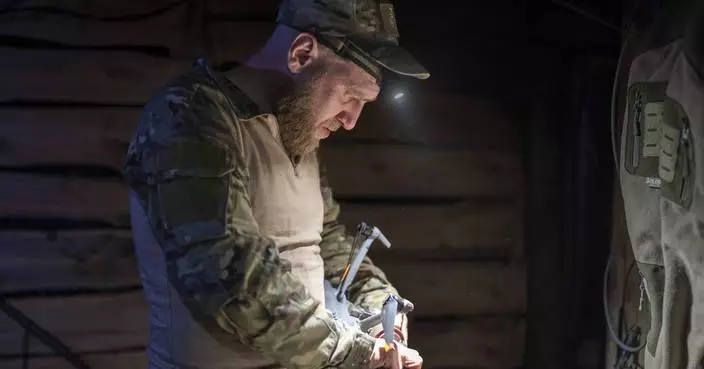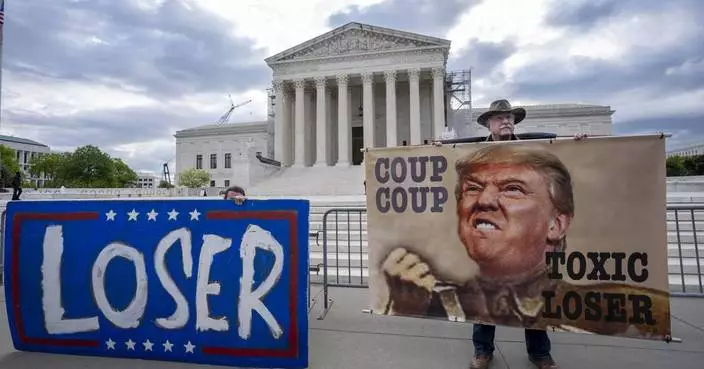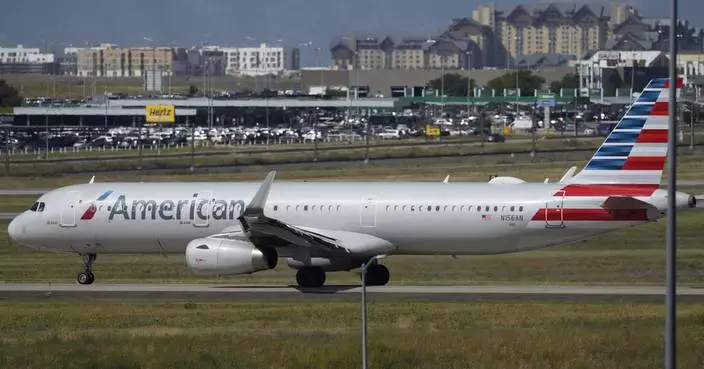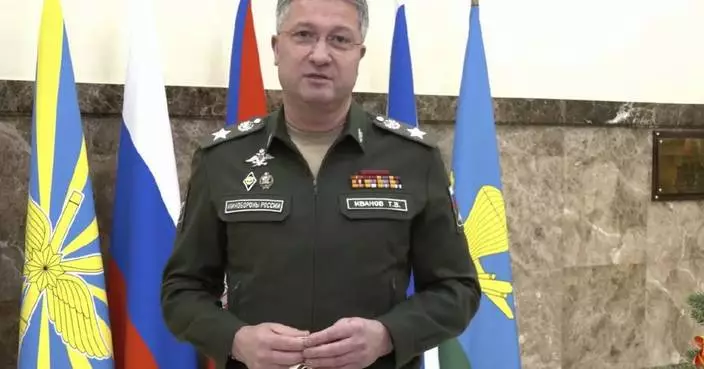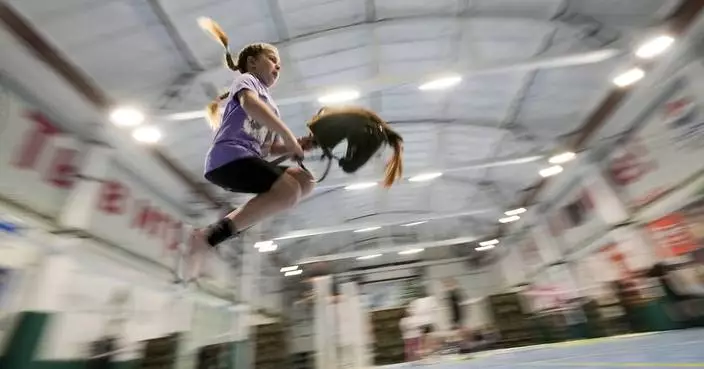Leading the march of the unheralded teams at the 2016 European Championship, Iceland provided a warm, feel-good story that few believed would last beyond those four glorious weeks in France.
The smallest nation — totaling around 330,000 inhabitants — ever to qualify for the tournament had reached the quarterfinals, famously bloodying the nose of England along the way. Their fans' "thunderclap" war chant became the soundtrack of that summer and would soon spread through the continent.
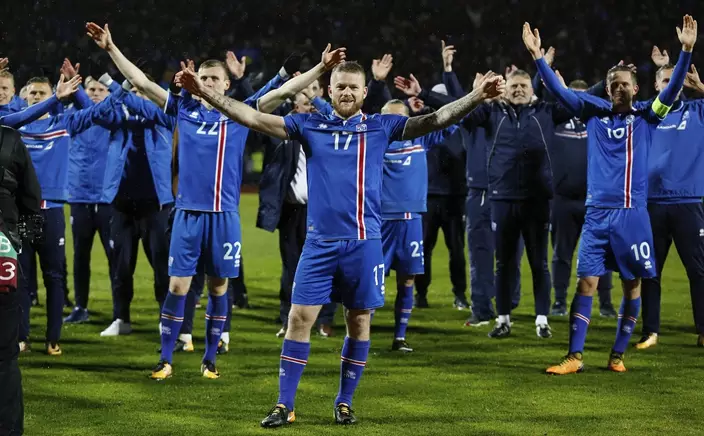
Iceland's captain Aron Gunnarsson celebrates at the end of the World Cup Group I qualifying soccer match between Iceland and Kosovo in Reykjavik, Iceland, Monday Oct. 9, 2017. (AP Photo/Brynjar Gunnarsson).
How could Iceland's national team ever top that?
It turns out that was just the start of this soccer fairytale, not the end.
On Monday, Iceland's players went a step further by qualifying for the 2018 World Cup in Russia, ensuring the Nordic country's presence on the sport's grandest stage for the first time. A 2-0 win over Kosovo in Reykjavik prompted wild celebrations that spilled into the city center.
Hours after the game, the team took to a stage at Ingolfstorg Square in downtown Reykjavik in front of around 5,000 cheering fans. The players — led by bearded captain Aron Gunnarsson — danced and, of course, performed one more rendition of the thunderclap to the backdrop of a beating drum.
"Some people consider this the biggest single event in the history of Icelandic sport," Klara Bjartmarz, general secretary of the Icelandic Football Association, told The Associated Press.
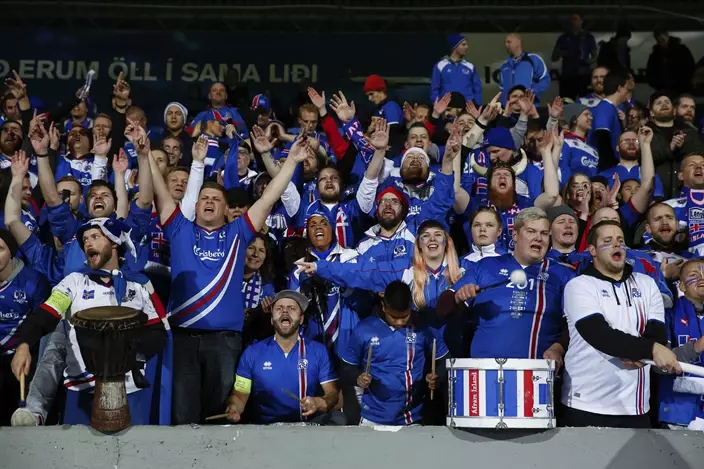
Iceland's fans celebrate their team's victory against Kosovo, following the World Cup Group I qualifying soccer match between Iceland and Kosovo in Reykjavik, Iceland, Monday Oct. 9, 2017. (AP Photo/Brynjar Gunnarsson).
In 2006, Trinidad and Tobago — with a population of 1.3 million — became the least-populous nation to play at a World Cup. Twelve years on, Iceland will dwarf that figure.
Much like Leicester gave the sporting underdog hope by winning the English Premier League in 2016 at preseason odds of 5,000-1, Iceland's improbable rise in international soccer is making other smaller nations dream.
Iceland is "a great example for small nations like our own," said Albert Bunjaki, the coach of a Kosovo team that was embarking on its first qualifying campaign as a member of world soccer's governing body, FIFA.
Iceland coach Heimar Hallgrimsson was struggling to come to terms with the achievement.
"The mind is all over the place," said Hallgrimsson, who combines managing his country's national team with running a dental surgery in a small town in Iceland.
"I mean... Pele, Maradona and Aron Einar Gunnarsson!"

Iceland's players, Aron Einar Gunnarsson, left and Jon Dadi Bodvarsson celebrate their team's victory against Kosovo, following the World Cup Group I qualifying soccer match between Iceland and Kosovo in Reykjavik, Iceland, Monday Oct. 9, 2017. (AP Photo/Brynjar Gunnarsson).
Hallgrimsson was the assistant to head coach Lars Lagerback at Euro 2016, and was promoted ahead of the World Cup qualifying campaign when Lagerback stood down. A modest and well-respected coach in Iceland, Hallgrimsson has managed to keep motivational levels high within the squad after the Euros.
He has also stuck to his own unique approach. Before the qualifier against Kosovo, like with every Iceland home game, Hallgrimsson met up with a supporters' group in a Reykjavik bar and disclosed the team's starting lineup and tactics. The fans, it appears, are as big a part of this journey as Iceland's players.
The Icelandic FA is set to benefit to the tune of at least $9million for getting to the World Cup. This comes after it earned 14 million euros from the team's run at Euro 2016, a windfall that Bjartmarz said was partly shared with Iceland's clubs while some funds were kept "for more difficult years."
The federation is pushing for a new national stadium to be built in Reykjavik, while money will continue to be ploughed into coach education and better training facilities for clubs.
"We knew we had the moment with us after the European Championship, so that was something we tried to build on," Bjartmarz said in a phone interview.
"But we haven't changed anything, just continued with what we believe in."
At the last count — in 2015 — Iceland had 22,000 registered soccer players, men and women. Although Bjartmarz is "quite sure" that number will have increased after the Euros, it still sums up the size of Iceland's achievement over the past few years — starting with reaching the European playoffs for the 2014 World Cup, where the team lost to Croatia.
Fittingly, Iceland beat Croatia to top spot in Group I four years on. Ukraine and Turkey were also swept aside. Iceland is currently 22nd in the FIFA rankings, punching far above its weight.
So, Hallgrimsson's well-organized, hard-working team and its loyal fanbase heads to Russia. Who knows what's next in this enchanting voyage.
"This success is not an end in itself," Hallgrimsson said in quotes carried by FIFA.com, "it is the beginning of a long journey towards the final destination."
AUGUSTA, Maine (AP) — An Army reservist and friend of the gunman behind Maine’s deadliest mass shooting testified Thursday about his friend's mental decline, describing publicly for the first time the warning he issued a month before the tragedy unfolded.
Sean Hodgson texted leaders of his reserve unit six weeks before the shooting that left 18 people dead and 13 wounded, telling them to change the passcode to the gate at their Army Reserve training facility and arm themselves if Robert Card showed up.
Hodgson told a panel investigating the mass shooting on Thursday that he issued the warning to superiors after Card’s delusional and violent behavior spiraled and ended with Card punching him in the face.
“I said ‘Just so you know, I love you. I’ll always be there for you. I won’t give up on you.’ He had that blank stare on his face. It was a dead stare and he drove away,” Hodgson recounted as his friend left him at a gas station.
The attacks happened six months ago on Oct. 25 when Card opened fire at a bowling alley and a bar in Lewiston, two locations where he held a delusional belief that people were talking about him behind his back. Two days later, the 40-year-old Reservist was found dead of a self-inflicted gunshot wound.
Hodgson told superiors on Sept. 15: “I believe he’s going to snap and do a mass shooting.”
But it wasn't just Hodgson who was worried about Card. Several other reservists witnessed his deterioration during training last summer. That led to a two-week hospitalization in July for Card, months after relatives warned police he had grown paranoid and that they were concerned about his access to guns.
The failure of authorities to remove Card’s weapons in the weeks before the shooting has become the subject of a monthslong investigation in the state, which also has passed new gun safety laws since the tragedy.
In an interim report released last month, an independent commission launched by Gov. Janet Mills concluded that the Sagadahoc County sheriff’s office had probable cause under Maine’s “yellow flag” law to take Card into custody and seize his guns. It also criticized police for not following up with Hodgson about his warning text. A final report is expected this summer.
On Thursday, Hodgson said he warned of a mass shooting because Card threatened multiple members of the unit with violence and that his threats and delusions were escalating. And he had access to guns.
“The way he was behaving was very threatening. It was escalating. The totality of the circumstances, the events leading to that moment, I was pretty convinced he was going to cause harm,” he said.
Another reservist, Daryl Reed, testified he witnessed Card’s mental and physical decline firsthand, seeing a “normal guy” who successfully traded stocks and loved hunting and the outdoors become increasingly paranoid and believing others were calling him a pedophile.
Card also acquired a thermal scope with a laser range finder that he said cost $10,000, and he demonstrated how it could be used to detect animals, including at night, Reed said.
He added fellow reservists started to become concerned Card could become a danger to colleagues. They were surprised, several testified, when Card was released from a psychiatric hospital after only two weeks.
In an exclusive series of interviews in January, Hodgson told The Associated Press he met Card in the Army Reserve in 2006 and that they became close friends after both divorced their spouses around the same time. They lived together for about a month in 2022, and when Card was hospitalized in New York in July, Hodgson drove him back to Maine.
Growing increasingly worried about his friend’s mental health, Hodgson warned authorities after Card started “flipping out” after a night of gambling, pounding the steering wheel and nearly crashing multiple times. After ignoring his pleas to pull over, Card punched him in the face, Hodgson said.
“It took me a lot to report somebody I love,” he said. “But when the hair starts standing up on the back of your neck, you have to listen.”
Some officials downplayed Hodgson’s warning, suggesting he might have been drunk because of the late hour of his text. Army Reserve Capt. Jeremy Reamer, the commanding officer of the reserve unit, described him as “not the most credible of our soldiers” and said his message should be taken “with a grain of salt.”
Hodgson said he struggles with post-traumatic stress disorder and alcohol addiction but said he wasn’t drinking that night and was awake because he works nights and was waiting for his boss to call. “I grieve every day for the many lives that are lost for no reason and those that are still affected today,” he told the AP earlier this month.
Cara Cookson, director of victim services for the Maine Office of the Attorney General, also testified Thursday and described through tears the daunting task of responding to the enormity of the tragedy with a “patchwork of resources.”
On Thursday evening, the Maine Resiliency Center, which provides support to people affected by the killings, held a six-month commemoration event that drew several hundred people to a park in Lewiston.
The names of the 18 people who died were read aloud at the start of the ceremony, and there were 18 empty chairs, each with a candle and a blue heart, honoring the victims.
The governor also acknowledged the anniversary. “Our hearts are still healing, and the road to healing is long, but we will continue to walk it together,” Mills said in a statement.
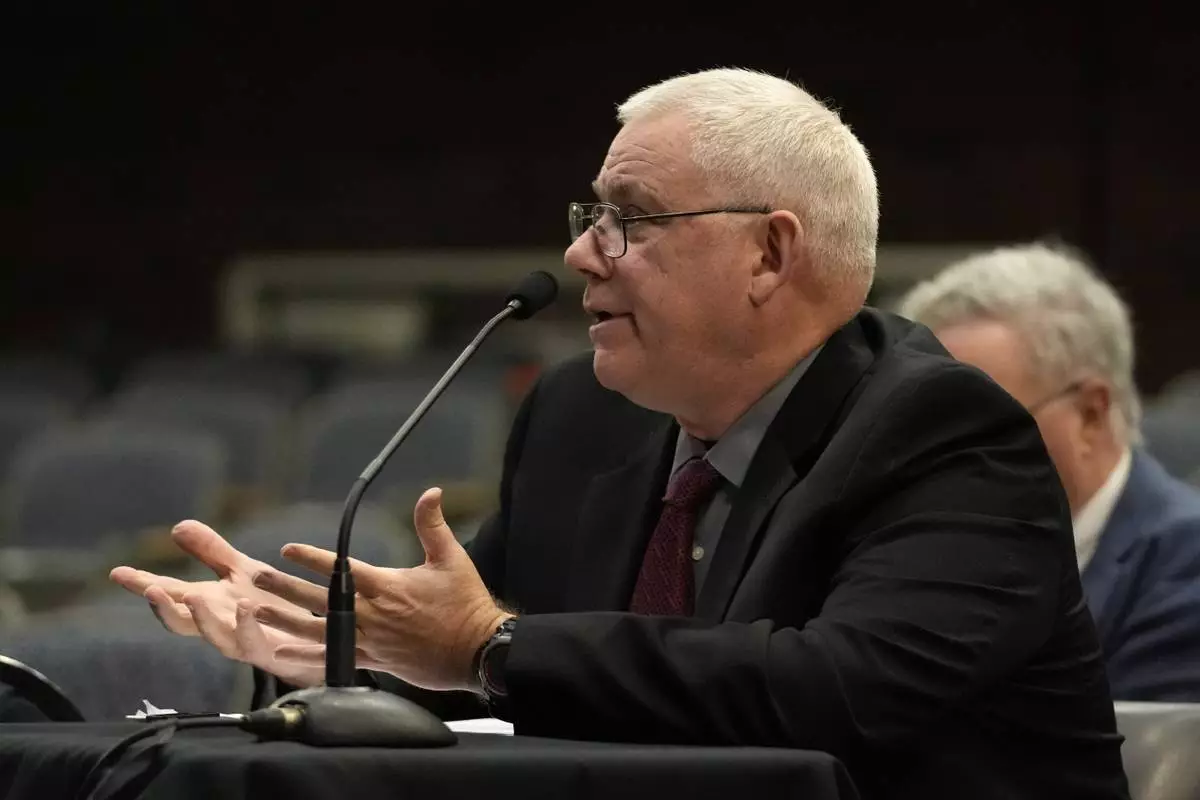
Ed Yurek, a member of the U.S. Army Reserve, gives testimony, Thursday, April 25, 2024, in Augusta, Maine, during a hearing of the independent commission investigating the law enforcement response to the mass shooting in Lewiston, Maine. (AP Photo/Robert F. Bukaty)
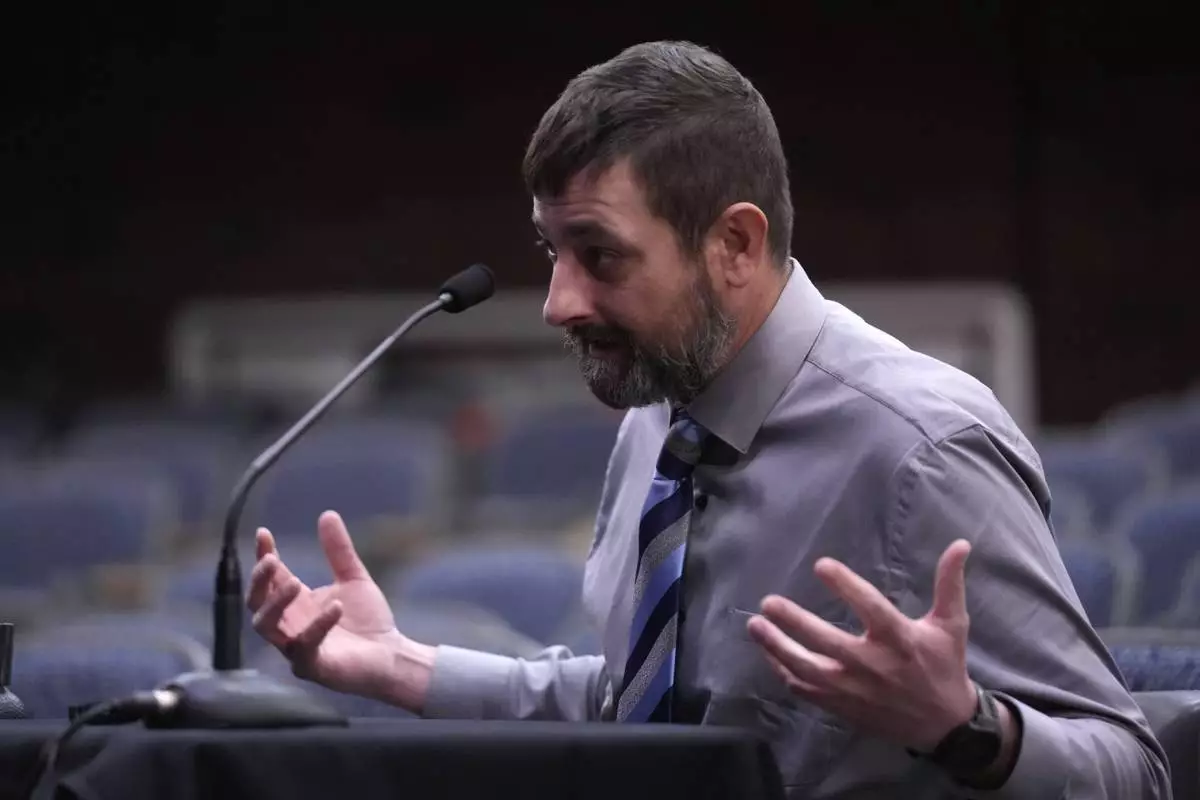
Sean Hodgson, a member of the U.S. Army Reserve, gives testimony, Thursday, April 25, 2024, in Augusta, Maine, during a hearing of the independent commission investigating the law enforcement response to the mass shooting in Lewiston, Maine. (AP Photo/Robert F. Bukaty)
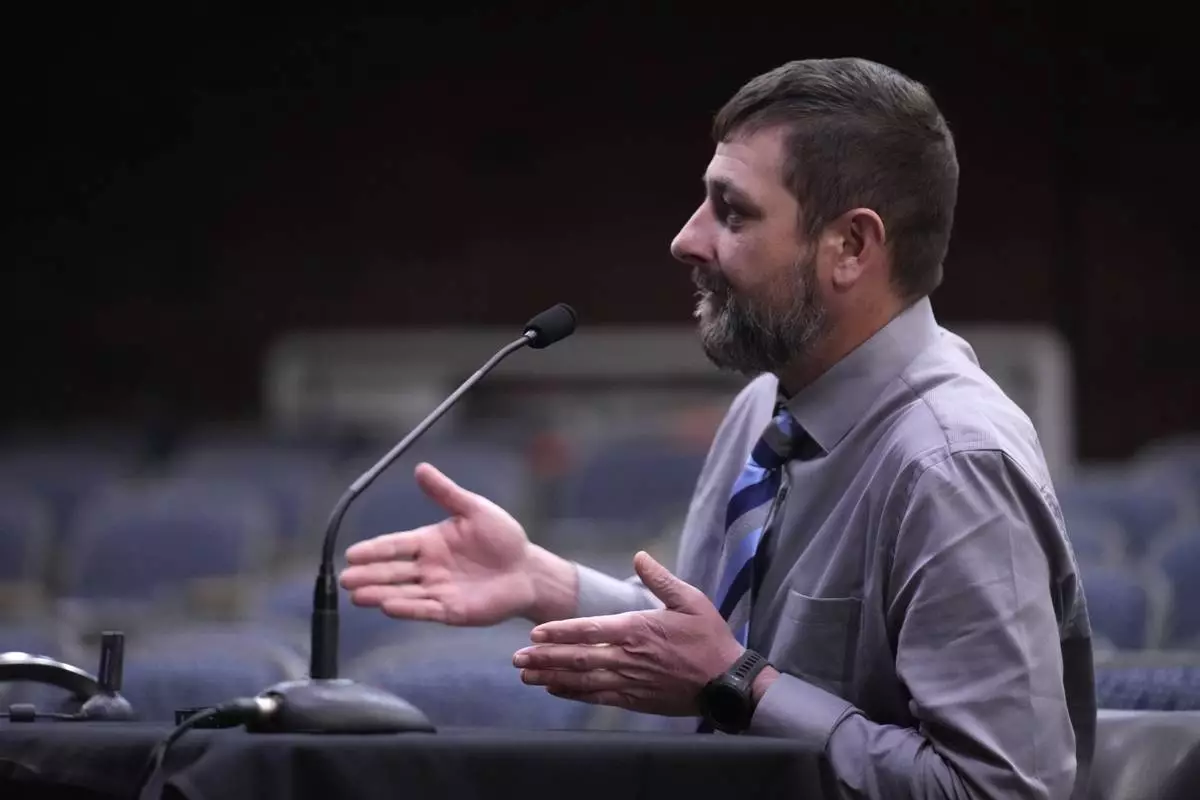
Sean Hodgson, a member of the U.S. Army Reserve, gives testimony, Thursday, April 25, 2024, in Augusta, Maine, during a hearing of the independent commission investigating the law enforcement response to the mass shooting in Lewiston, Maine. (AP Photo/Robert F. Bukaty)
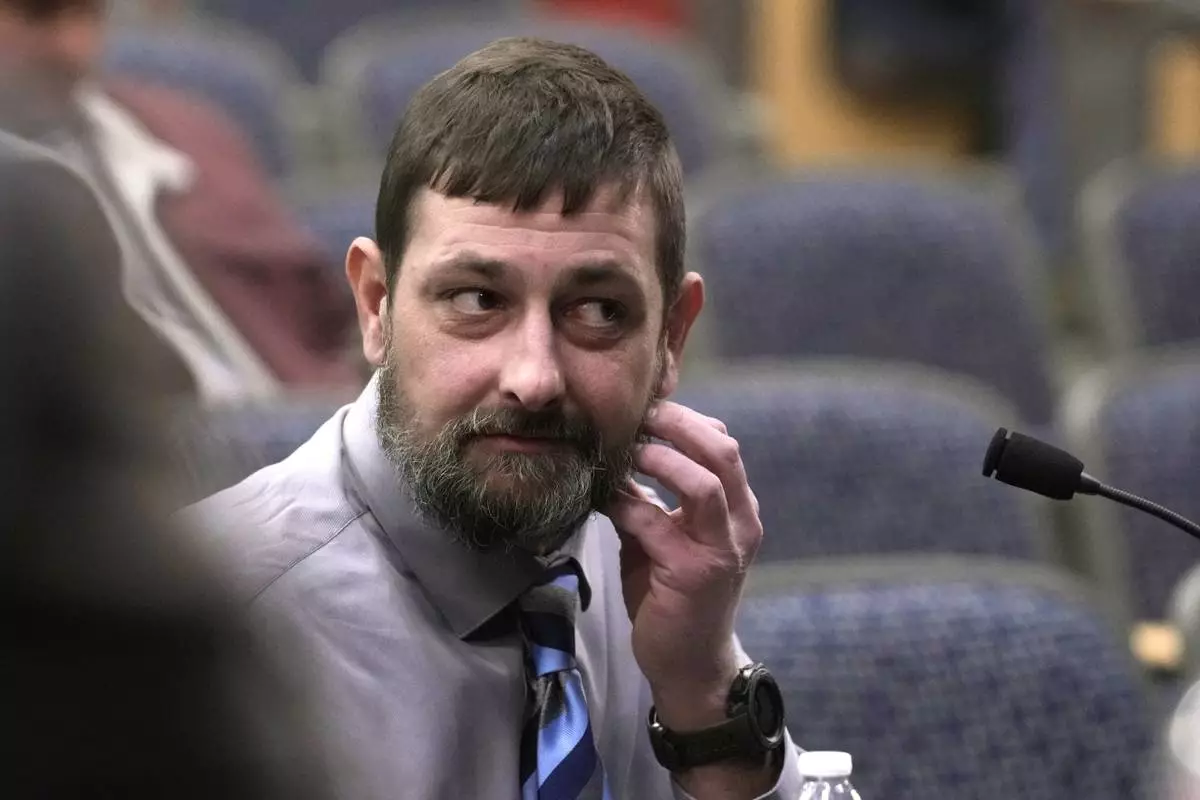
Sean Hodgson, a member of the U.S. Army Reserve, shows where he was punched by Robert Card while giving testimony, Thursday, April 25, 2024, in Augusta, Maine, during a hearing of the independent commission investigating the law enforcement response to the mass shooting in Lewiston, Maine. (AP Photo/Robert F. Bukaty)
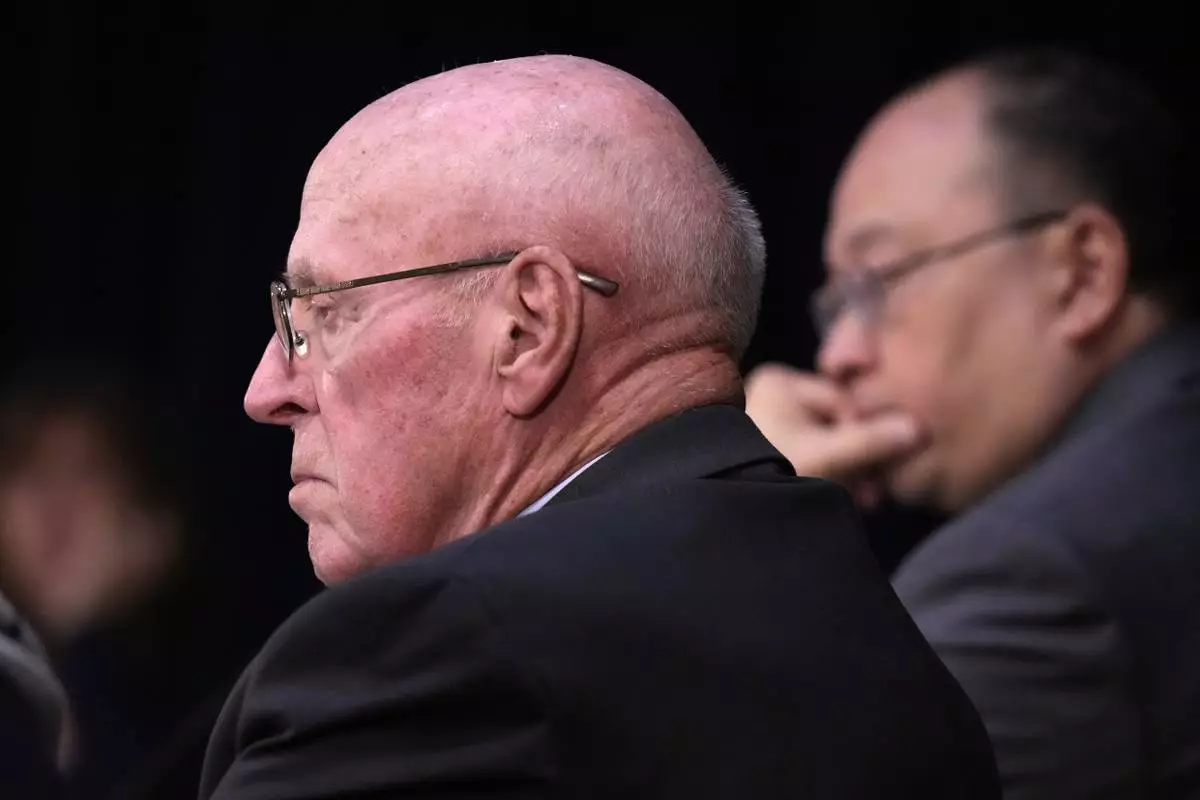
Daniel Wathen listens to testimony, Thursday, April 25, 2024, in Augusta, Maine, during a hearing of the independent commission investigating the law enforcement response to the mass shooting in Lewiston, Maine. (AP Photo/Robert F. Bukaty)
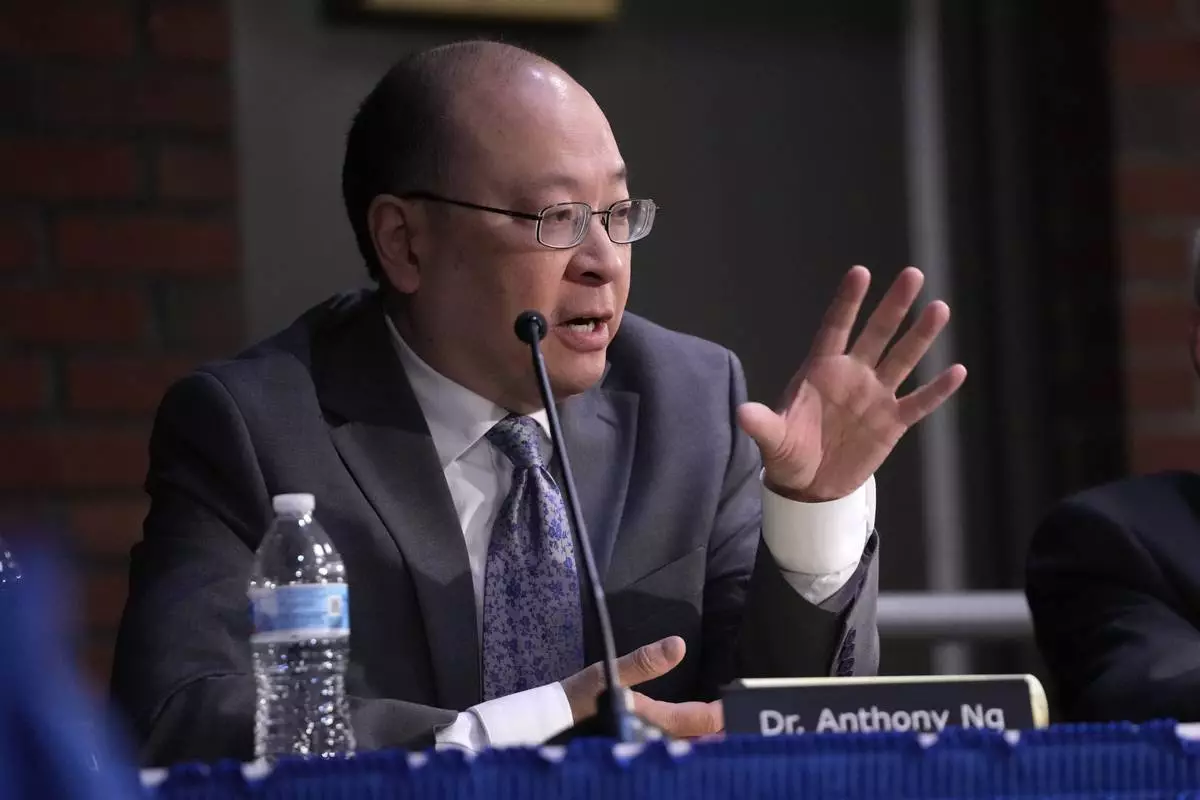
Dr. Anthony Ng questions a witness, Thursday, April 25, 2024, in Augusta, Maine, during a hearing of the independent commission investigating the law enforcement response to the mass shooting in Lewiston, Maine. (AP Photo/Robert F. Bukaty)
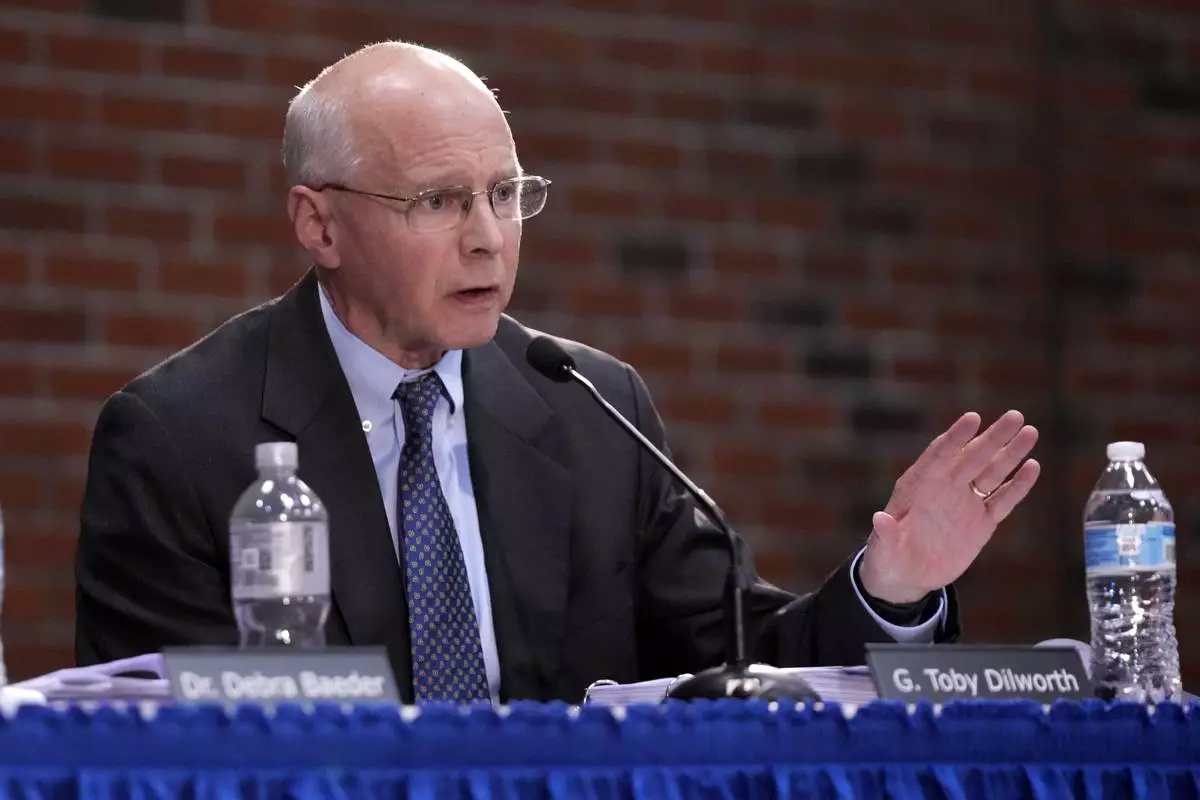
Toby Dilworth questions a witness, Thursday, April 25, 2024, in Augusta, Maine, during a hearing of the independent commission investigating the law enforcement response to the mass shooting in Lewiston, Maine. (AP Photo/Robert F. Bukaty)
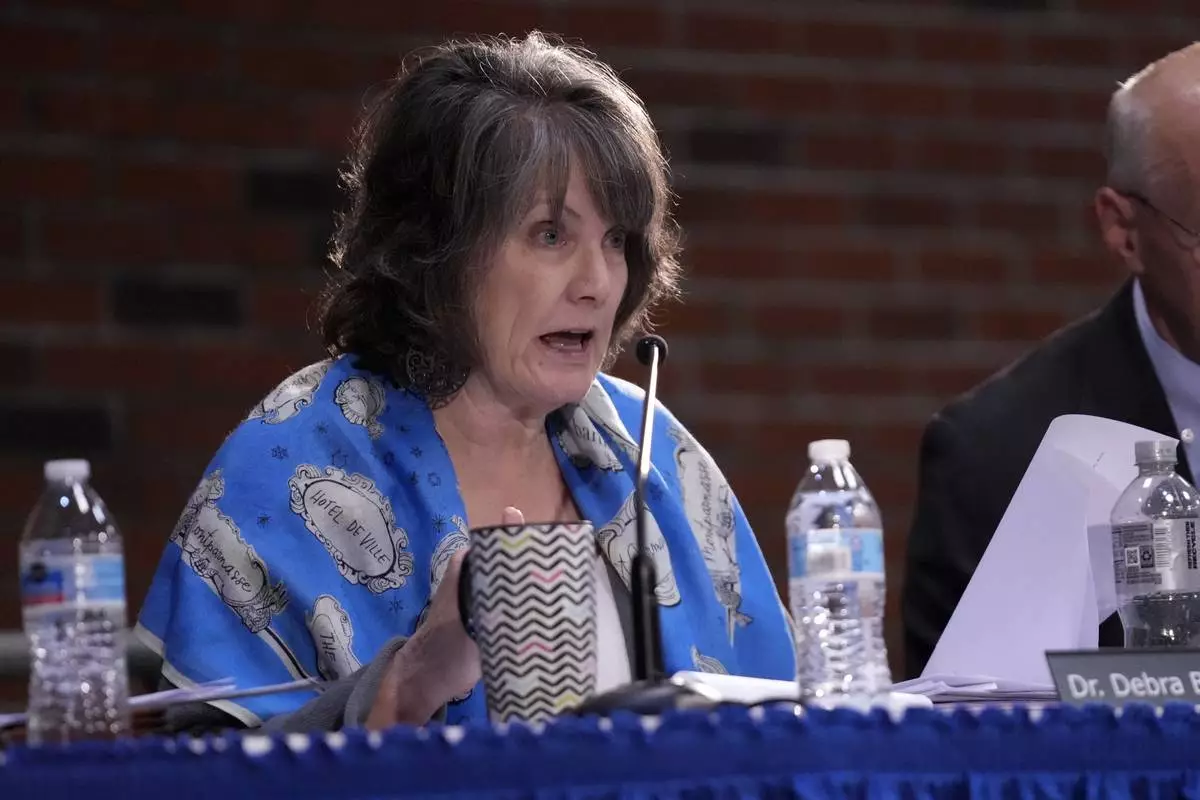
Dr. Debra Baeder questions a witness, Thursday, April 25, 2024, in Augusta, Maine, during a hearing of the independent commission investigating the law enforcement response to the mass shooting in Lewiston, Maine. (AP Photo/Robert F. Bukaty)
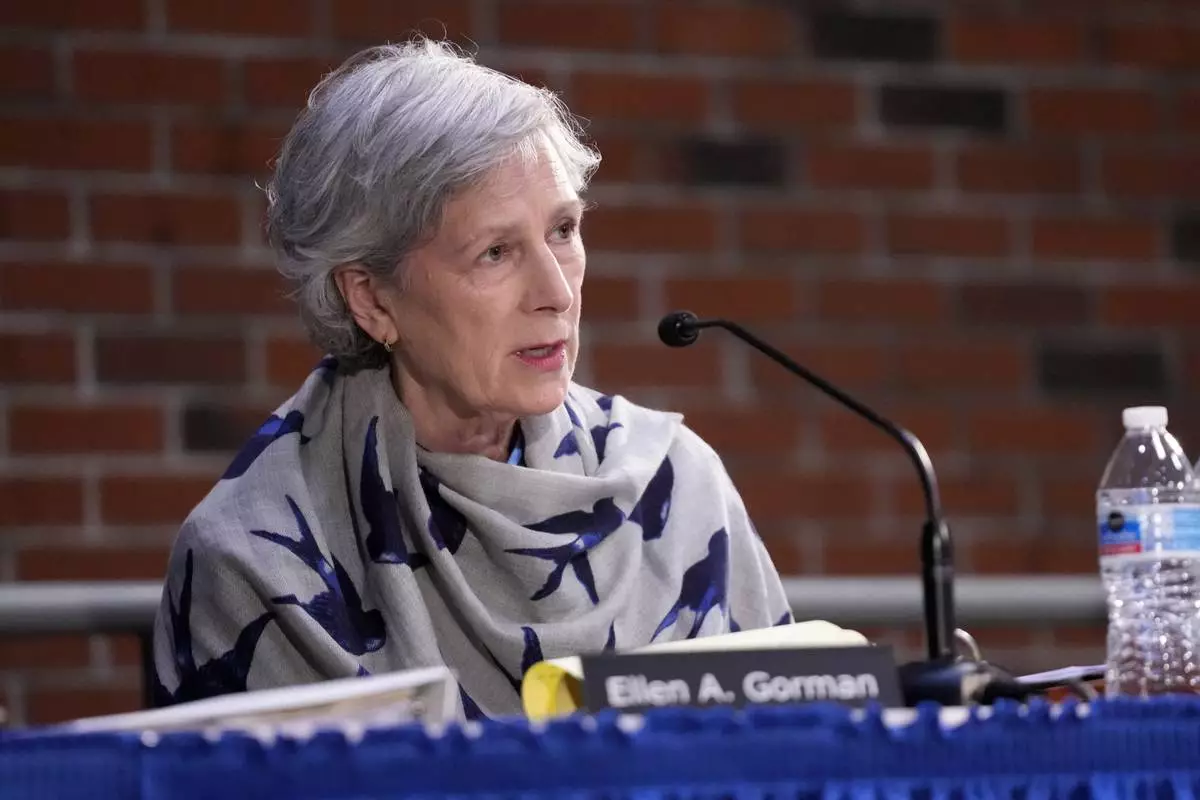
Ellen Gorman questions a witness, Thursday, April 25, 2024, in Augusta, Maine, during a hearing of the independent commission investigating the law enforcement response to the mass shooting in Lewiston, Maine. (AP Photo/Robert F. Bukaty)
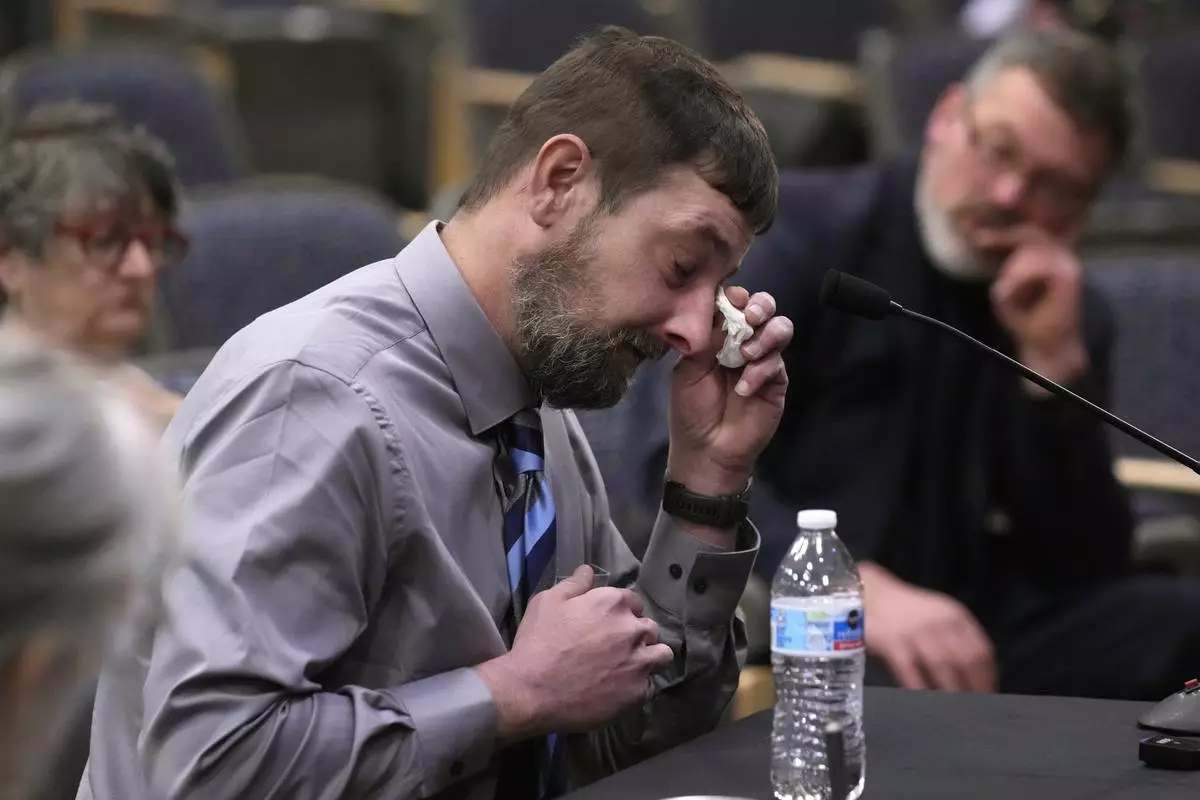
Sean Hodgson, a member of the U.S. Army Reserve, wipes tears while recalling the moment he heard about the mass shooting, Thursday, April 25, 2024, in Augusta, Maine, during a hearing of the independent commission investigating the law enforcement response to the mass shooting in Lewiston, Maine. (AP Photo/Robert F. Bukaty)
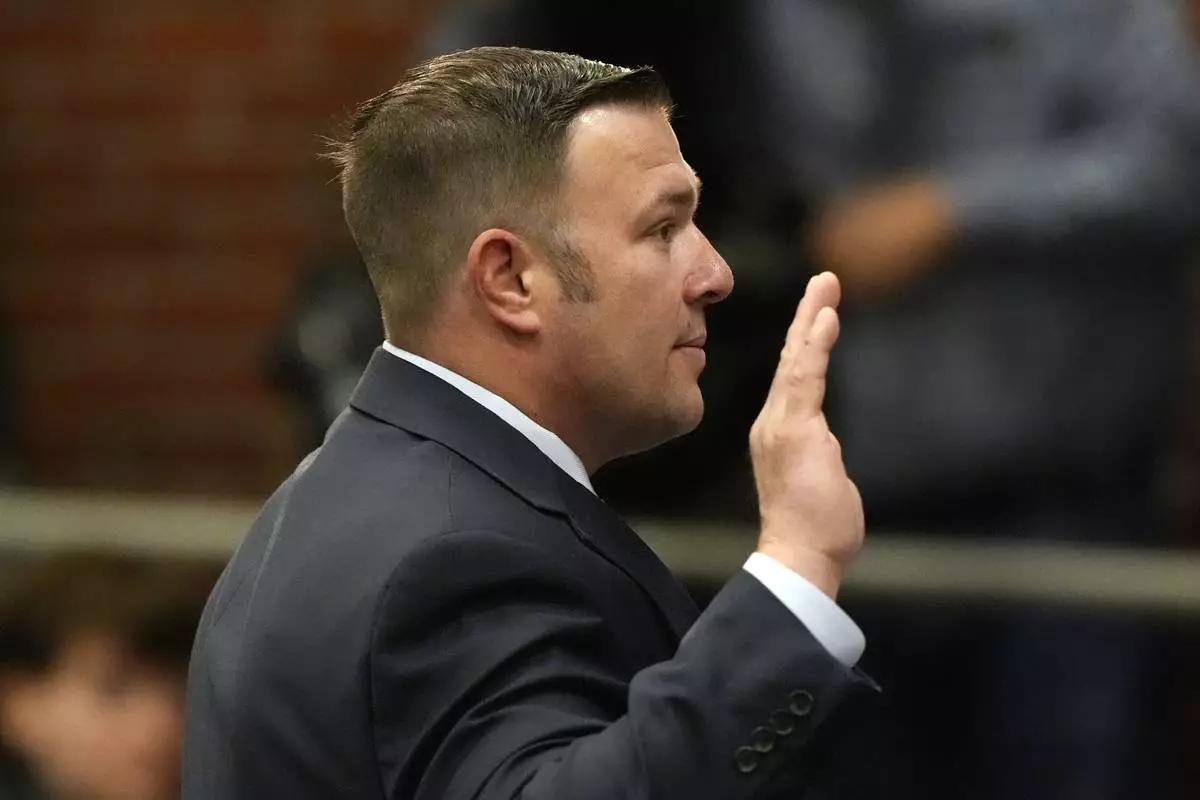
Daryl Reed, a member of the U.S. Army Reserves, is sworn in before giving testimony Thursday, April 25, 2024, in Augusta, Maine, during a hearing of the independent commission investigating the law enforcement response to the mass shooting in Lewiston, Maine. (AP Photo/Robert F. Bukaty)
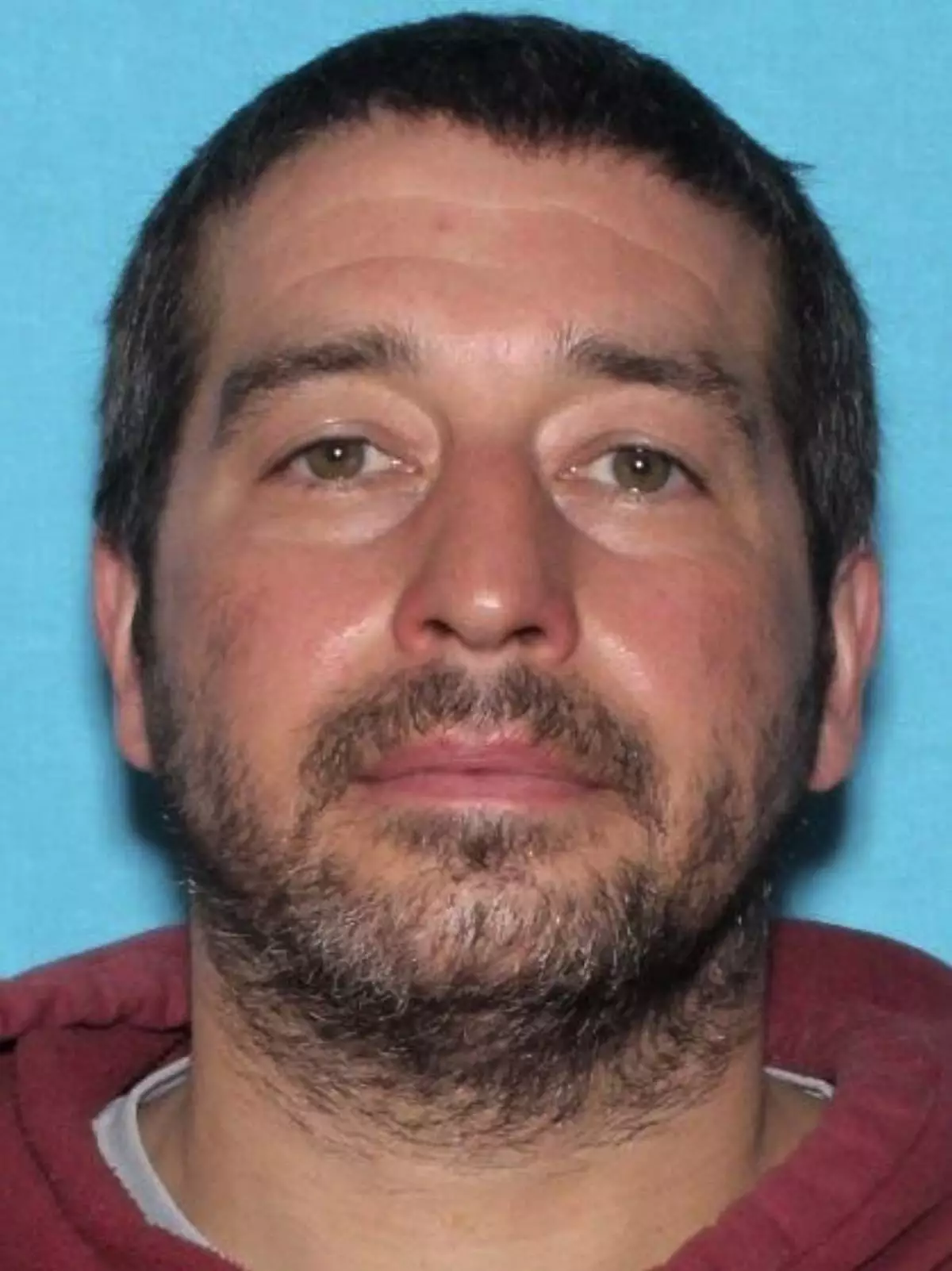
FILE - This photo released by the Lewiston, Maine, Police Department shows Robert Card, who was responsible for the mass shootings in Lewiston, Maine, on Oct. 25, 2023. Sean Hodgson, a fellow U.S. Army reservist who sounded the clearest warning ahead of Maine’s deadliest mass shooting, is expected to answer questions Thursday, April 25, 2024, from the commission investigating the tragedy. (Lewiston Police Department via AP, File)
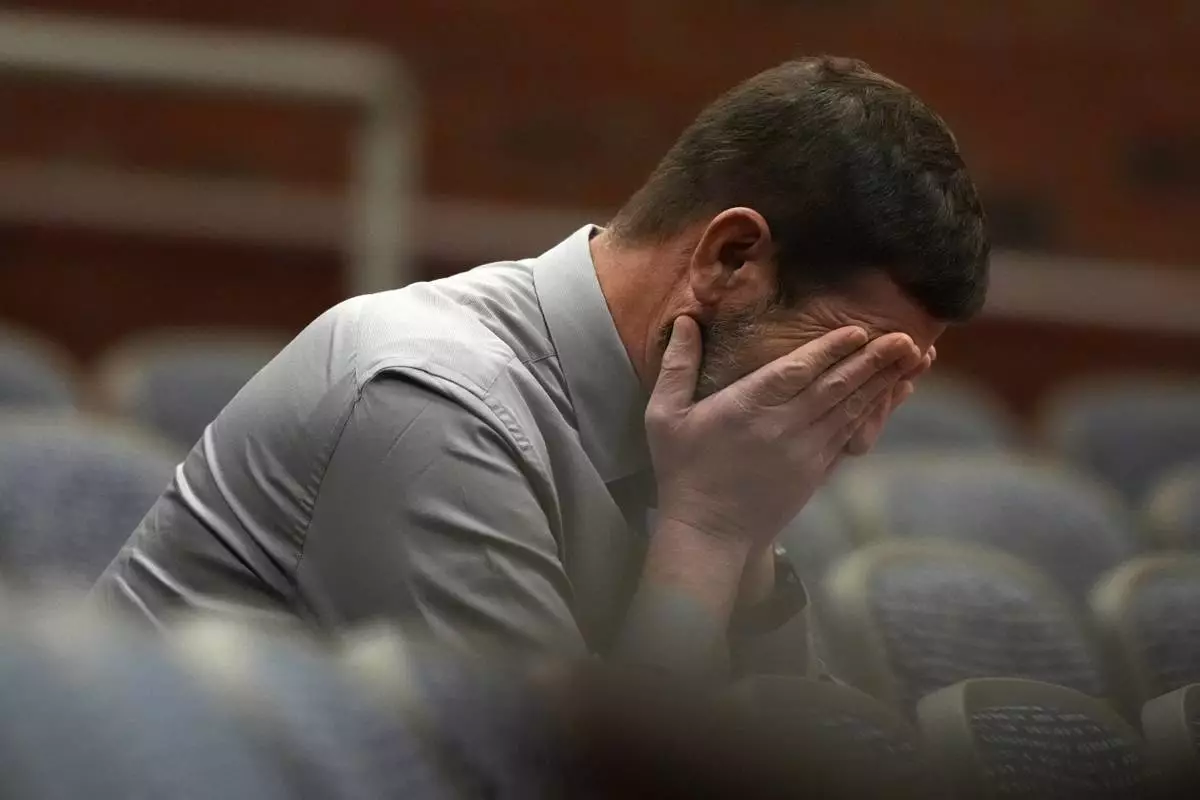
Sean Hodgson waits to be called to give testimony, Thursday, April 25, 2024, in Augusta, Maine, during a hearing of the independent commission investigating the law enforcement response to the mass shooting in Lewiston, Maine. Hodgson had alerted an Army supervisor in September that his friend, Robert Card, was capable to doing a mass shooting. (AP Photo/Robert F. Bukaty)


















